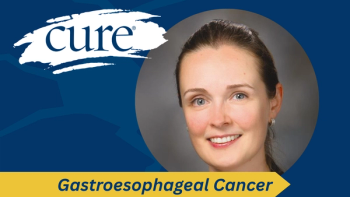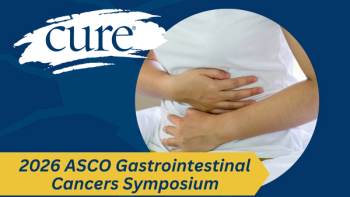
New Targeted Antibody Shows Promise for Advanced Urothelial Cancer
After progressing on prior therapy, 44% of patients with locally advanced or metastatic urothelial cancer who were treated with enfortumab vedotin demonstrated a response to treatment, according to phase 2 study findings.
After progressing on prior therapy, 44% of patients with locally advanced or metastatic urothelial cancer who were treated with enfortumab vedotin demonstrated a response to treatment, according to results from the phase 2 EV-201 study presented at the 2019 American Society of Clinical Oncology Annual Meeting.
Patients with locally advanced or metastatic urothelial cancer are usually treated with platinum-based chemotherapy first, followed by second-line checkpoint inhibitor therapy, such as Keytruda (pembrolizumab), Tecentriq (atezolizumab), Imfinzi (durvalumab), Opdivo (nivolumab) and Bavencio (avelumab), if their disease progresses.
However, 75% to 80% of these patients still experience cancer progression following checkpoint inhibitor therapy, and there is no remaining approved standard of care treatment option after immunotherapy has been used.
“There is a high unmet need for patients with advanced and metastatic urothelial carcinoma,” lead study author Daniel P. Petrylak, MD, professor of medicine and urology at Yale Cancer Center, said during a press briefing at the meeting. “Enfortumab vedotin is the first novel therapeutic agent to demonstrate substantial clinical activity in patients who progressed after platinum chemotherapy or a PD-1 or PD-L1 inhibitor.”
In the pivotal, single-arm, two-cohort study, investigators evaluated the antibody-drug conjugate—designed to target Nectin-4, which is highly expressed in urothelial carcinoma—in patients who progressed following treatment with platinum chemotherapy and a PD-1 or PD-L1 immune checkpoint inhibitor.
Patients were stratified into two groups: cohort one had been previously treated with both medicines (128 patients) and cohort two had not received platinum chemotherapy and were ineligible for cisplatin. Petrylak reported on results from group one at the meeting, while enrollment is ongoing for cohort two.
As of January 2019, the confirmed ORR was 44%, with a 12% complete response rate and a 32% partial response rate. Thirty-five patients (28%) had stable disease and 23 had progressive disease (18%).
Moreover, median overall survival was 11.7 months, median progression-free survival (the time from treatment to disease progression) was 5.8 months and median duration of response was 7.6 months.
Responses were observed across all subgroups, irrespective of response to prior PD-1/L1 inhibitors or presence of liver metastases.
Median time to response was 1.8 months, with 44% of responses ongoing.
The most common treatment-related side effects of any grade were fatigue (50%), alopecia (49%), and decreased appetite (44%), while side effects of interest were rash (48%), any peripheral neuropathy (50%) and any hyperglycemia (11%).
Twelve percent of patients discontinued treatment due to a treatment-related side effect—mostly due to peripheral neuropathy. One death was reported as treatment related (interstitial lung disease), but was confounded by a suspected pulmonary infection, as per the investigator.
Results from the earlier phase 1 EV-101 trial demonstrated an objective response rate of 41%, including 3 complete responses (4%) and 26 partial responses (37%).
In March 2018, the Food and Drug Administration (FDA) granted a breakthrough therapy designation to enfortumab vedotin for patients with locally advanced or metastatic urothelial cancer that has progressed during or following checkpoint inhibitor therapy based on phase 1 trial results.
“We feel that both of these trials support the submission to the FDA for accelerated approval,” Petrylak said, adding that two additional trials are ongoing: The randomized phase 3 EV-301 trial is evaluating enfortumab vedotin compared with standard-of-care post-platinum and a PD-1/L1 inhibitor; and EV-103 will investigate the agent in combination with Keytruda and/or chemotherapy.
“[EV-103] will be our pivotal phase III trial with this particular drug,” Petrylak added. “We are very excited about this.”
ASCO expert Dr. Robert Dreicer supported the findings, adding that there is a clear unmet need in this patient population. “Metastatic urothelial cancer is a pretty common disease and there is very limited therapeutics. For decades, frontline chemotherapy was all we had…. New therapies are badly needed.”
“I’m also compelled by this data…median survival approached a year and with frontline chemotherapy, survival is 13 months,” he added. “The reality is, I look at these data as effective. I would support accelerated approval. I hope the FDA shares that and that the confirmatory phase III trial will get done rapidly, hopefully. I think this is an important development for our patients.”




